As part of our commitment to share accessible information created in dialogue with our Guatemalan partners, we share below some key points of the historical electoral process, which will culminate with the second round on August 20th.
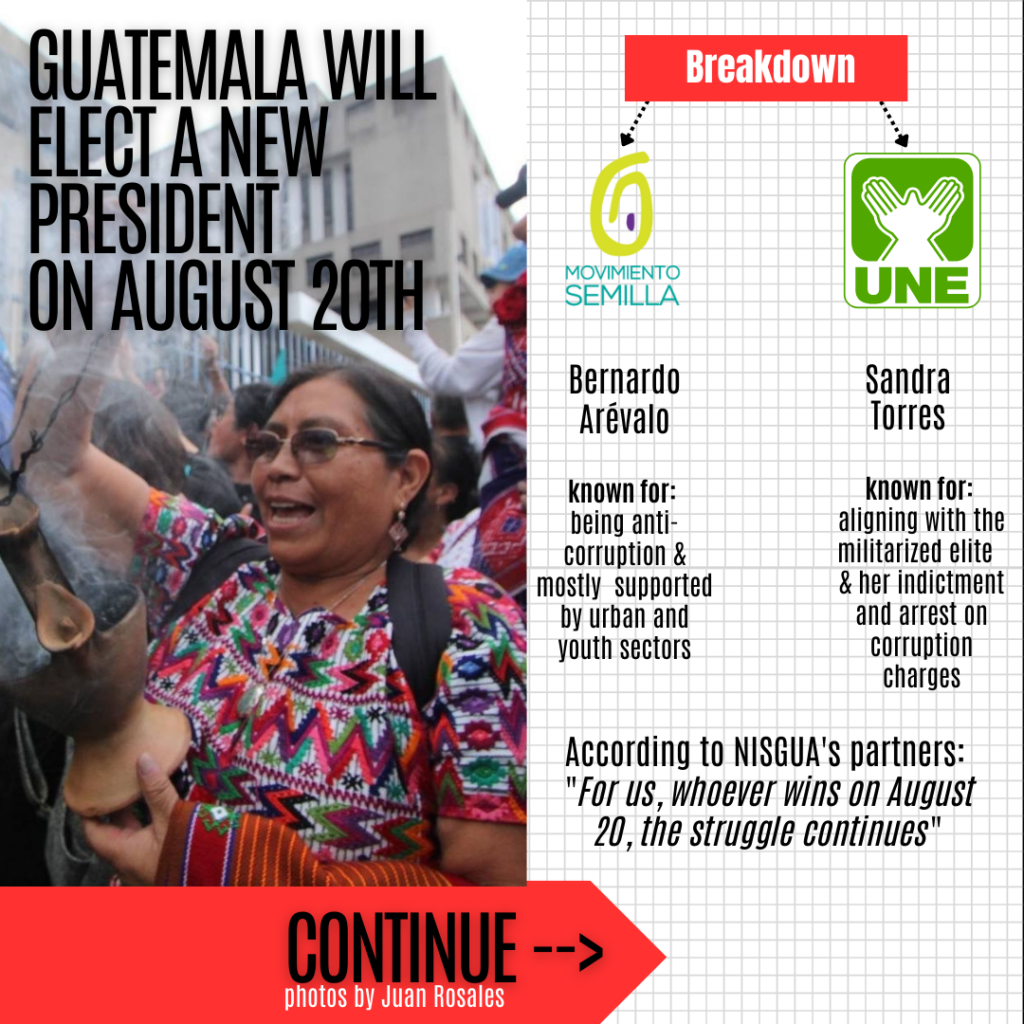
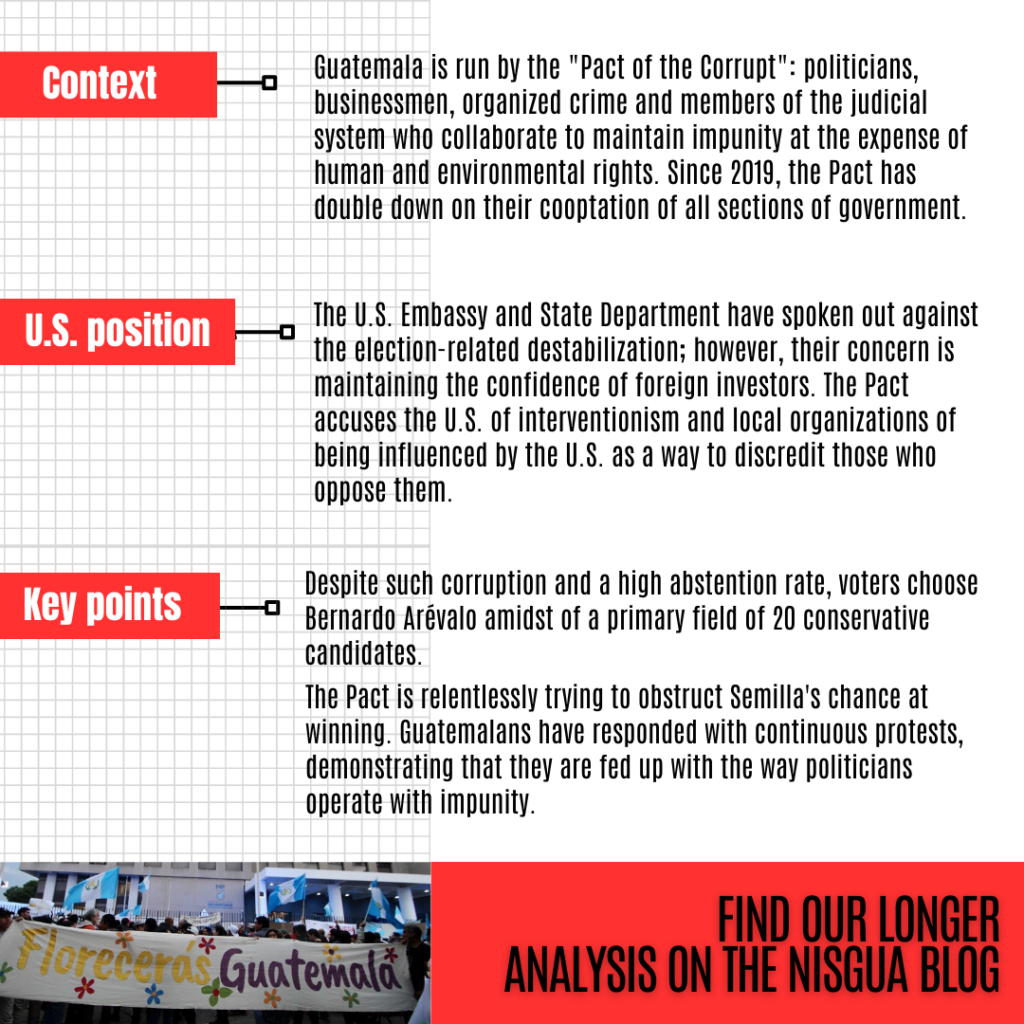
General context for understanding elections in Guatemala:
- “Pacto de Corruptos” is a term used in Guatemala to refer to politicians, businessmen, organized crime and members of the judicial system accused of acts of corruption and who maintain a system of impunity that protects them from prosecution and maintain their political and economic control at the expense of the majority of the population.
- Since the expulsion of the CICIG (International Commission against Impunity in Guatemala) in 2019, which investigated high impact cases of corruption in the country, the Pacto de Corruptos redoubled their efforts to reestablish their control by co-opting state institutions by placing in them representatives that respond to the interests of the Pact of Corrupts such as: The Constitutional Court, the Supreme Court of Justice, The Human Rights Ombudsman’s Office, the Public Prosecutor’s Office, the Congress among others.
- The Pact of Corrupts intervened from the beginning of the electoral process: arbitrary decisions of the electoral authorities on the candidates that could compete, such as allowing Zury Ríos, daughter of the genocidal Ríos Montt, to participate unconstitutionally, and denying the candidacy of the MLP (Movement for the Liberation of the Peoples), an Indigenous and peasant political platform that proposes systemic changes, such as the convening of a Popular and Plurinational Constituent Assembly.
- Despite such efforts and a high abstention rate, voters clearly rejected the status quo politicians in the first round of Guatemala’s presidential elections and Semilla, an anti-corruption political party, advanced to the second round supported mostly by urban and youth sectors.
- The presidential candidate for the Semilla party, Bernardo Arévalo, is the son of Juan José Arevalo, who began the 10-year period known as the Democratic Spring in 1944, which lasted until 1954 when Jacobo Arbenz was deposed by a U.S.-backed coup d’état.
- The other candidate who advanced to the second round is Sandra Torres for the UNE Party (Unidad Nacional de la Esperanza), who has been indicted and previously arrested on corruption charges, has an anti-rights agenda and has allied herself with the military, the evangelical church and members of the Pact of the Corrupt.
- After the results of the first round, the Pact of Corrupts tried to obstruct the officialization of the results and continues to sabotage the elections through the judicialization of the process: using judges related to them who issue spurious resolutions and through persecution and criminalization attempts by the MP, as it issued arrest warrants against members of the Semilla party (some have even gone into exile) and raided both the headquarters of the party and the Supreme Electoral Tribunal.
- Judicial interference in the electoral process has generated continuous protests that demonstrate that the Guatemalan population is fed up with the way politicians operate with impunity.
U.S. Political Positioning
- The U.S. Embassy and State Department have spoken out against destabilizing the elections over the past month. Their opposition to corruption has to do with their political and economic interests. Corruption in Guatemala affects foreign investment because of the lack of confidence it generates for transnational companies. Therefore, progressive Guatemalan and solidarity, human rights, and anti-corruption organizations are temporarily aligned with the U.S. to promote transparency and respect for laws and the eradication of corruption. The Pact of Corruption accuses the U.S. of interventionism and local organizations of being influenced by the U.S. as a way to discredit those who oppose them.
Political perspectives:
- The Pact of Corrupts is willing to further destroy democratic state spaces in Guatemala to avoid losing the presidency, protect its economic interests and guarantee impunity for its members.
- The people continue in a permanent struggle to defend territories, life and dignity, regardless of which president remains or not.
- We must be very careful with expecting too much from Semilla, taking into account that if Arevalo becomes president he will have to work with a congress aligned to the Pact of Corruption and remembering as a lesson the slow but sure co-optation of Xiomara Castro by the military and the US in Honduras.
Analysis by the AJR board members
- “Everything points to the fact that the elections are going to be held on August 20, but it is necessary to be vigilant because at any moment there could be a breakdown of the institutional order. The Pact of Corrupts is acting in an extremely aggressive manner.
- We position ourselves in defense of democracy, the rule of law and the defense of the will of the people. For us, whoever wins on August 20, the struggle continues and we see two scenarios:
- If Semilla wins, the Pact of Corrupts will not stand idly by, it will react, so we foresee a strong battle to be fought from August 20 to January 14, which would be the inauguration, since the Pact of Corrupts could make several maneuvers to prevent the inauguration from taking place.
- If it succeeds in taking office, Semilla’s government will face the challenge of dealing with co-opted institutions and a congress controlled by the Pact of Corrupts, so they will have to do a lot of work to achieve what they have set out to do.
- In the scenario that Sandra Torres of the UNE wins, she will surely increase the persecution and criminalization of our organizations, because she is a defender of the status quo, and is expanding her pacts and alliances with power groups, so if she becomes president she will have to pay many favors that will go against the will and benefit of the people.
- So in the current scenario we have to be prepared for the struggle in the short and medium term.”

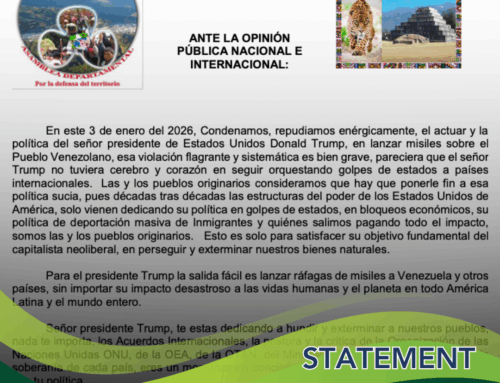
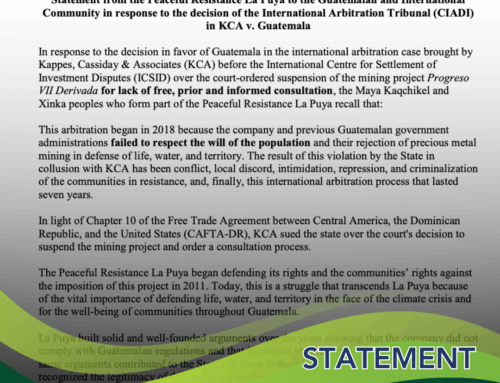

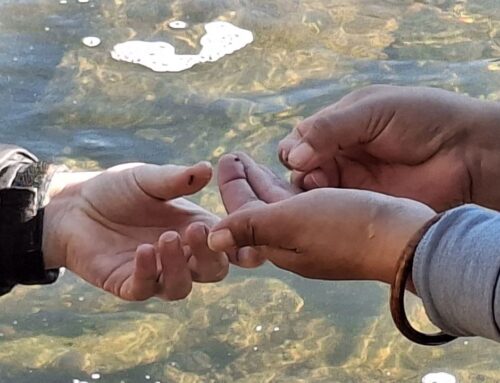

Leave A Comment